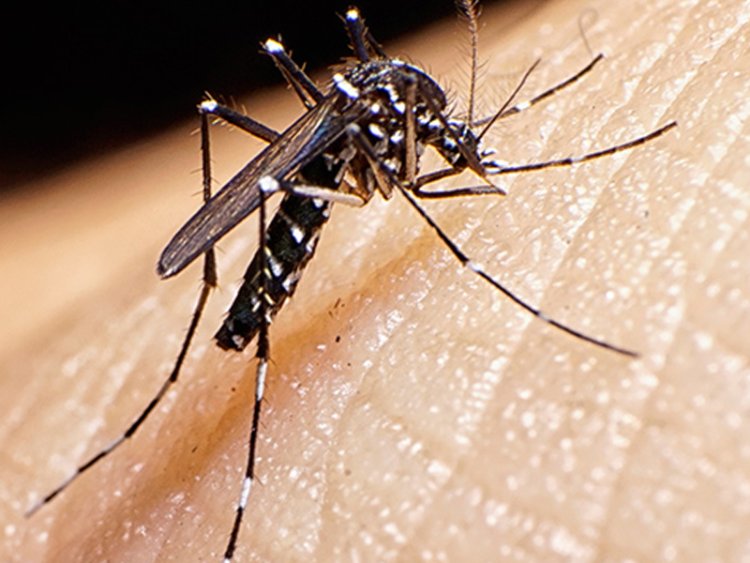Why Did Nature Create Mosquitoes? Are They Totally Useless Vampires?
I spend all winter in my little Canadian shack, hibernating in layers of wool and existential doubt, fantasizing about summer. Sun. Heat. Bare skin. Bare feet. Fresh air that doesn’t hurt your face. And when it finally arrives, what does it bring?

Mosquitoes.
Tiny, airborne needles with wings, buzzing obscenities in my ear, and stealing my blood like it’s on clearance.
It’s hard not to take it personally. After all, I didn’t spend seven months listening to frozen pine trees crack in the wind just to become the open buffet for a flying syringe.
So naturally, I ask the question:
Why? Why did nature invent mosquitoes?
???? Let’s Pretend to Be Rational: What Science Says
First, not all mosquitoes suck blood. In fact, only female mosquitoes do — and only because they need the protein in blood to develop their eggs. The males?
They drink nectar.
They pollinate.
They listen to indie folk and write poetry, probably.
But the ladies? They are evolution’s little vampires, designed with six legs, compound eyes, a chemical GPS, and a mouthpart that functions like a Swiss Army knife dipped in bad intentions.
In their defense (and it's a short defense), mosquitoes do play a role in the ecosystem:
-
They are food for birds, bats, frogs, and fish.
-
They help pollinate certain plants.
-
Their larvae filter organic material in water.
Great. So they’re not totally useless.
They’re partially useless — with benefits. Like a very noisy roommate who does the dishes twice a year.
???? The Real Problem: Mosquitoes Are Too Good at What They Do
Nature didn’t just create mosquitoes.
Nature optimized them.
They can detect the carbon dioxide you exhale from up to 75 feet away.
They’re drawn to body heat, sweat, and the very scent of your desperation.
Their saliva contains an anticoagulant that stops your blood from clotting, ensuring a smooth, uninterrupted pour.
And what do they give you in return?
Malaria, dengue, Zika, West Nile, itching, insomnia, and a slow-burning hatred for open windows.
It’s not a fair trade.
It’s like paying for a concert and getting punched in the face at the door.
???? What If... They’re a Cosmic Joke?
If we step back from science for a moment — which is always dangerous, but often fun — maybe mosquitoes are nature’s way of keeping us humble.
We invented fire.
We landed on the Moon.
We’ve created artificial intelligence and Wi-Fi in the woods.
And yet, a 2-millimeter insect with a straw can reduce us to flailing, swearing, paranoid messes, armed with citronella candles and questionable sprays that smell like melted glue.
The mosquito reminds us that you don’t need to be big to be powerful, or liked to be effective.
???? Could We Just... Eliminate Them?
Scientists have tried.
There are ongoing projects using gene editing (like CRISPR) to sterilize mosquitoes or make them unable to carry disease.
Entire species, like Aedes aegypti, are being targeted with high-tech precision.
But here’s the catch:
If you remove one species completely, you risk a ripple effect.
Something that eats mosquito larvae might go hungry.
Something that gets eaten by the thing that eats mosquitoes might suddenly overpopulate.
Nature doesn’t really do “delete” — she does “rearrange.”
And honestly, given the number of humans on this planet doing real ecological damage, maybe mosquitoes are just balancing the karma.
???? Final Thoughts from the Shack
So why did nature create mosquitoes?
Because evolution doesn’t care about your summer plans.
Because protein must flow.
Because balance, as annoying as it is, includes bloodsucking little monsters.
They’re not entirely useless.
They’re just deeply, existentially irritating.
Like slow Wi-Fi. Or lukewarm coffee. Or those people who say “just breathe through it” while you’re being eaten alive.
So the next time one bites you — try to be gracious.
You are, in that moment, contributing to the continuation of a complex, ancient ecosystem.
...Then slap it into oblivion. Because you’re also part of that ecosystem. And frankly, respect goes both ways.













